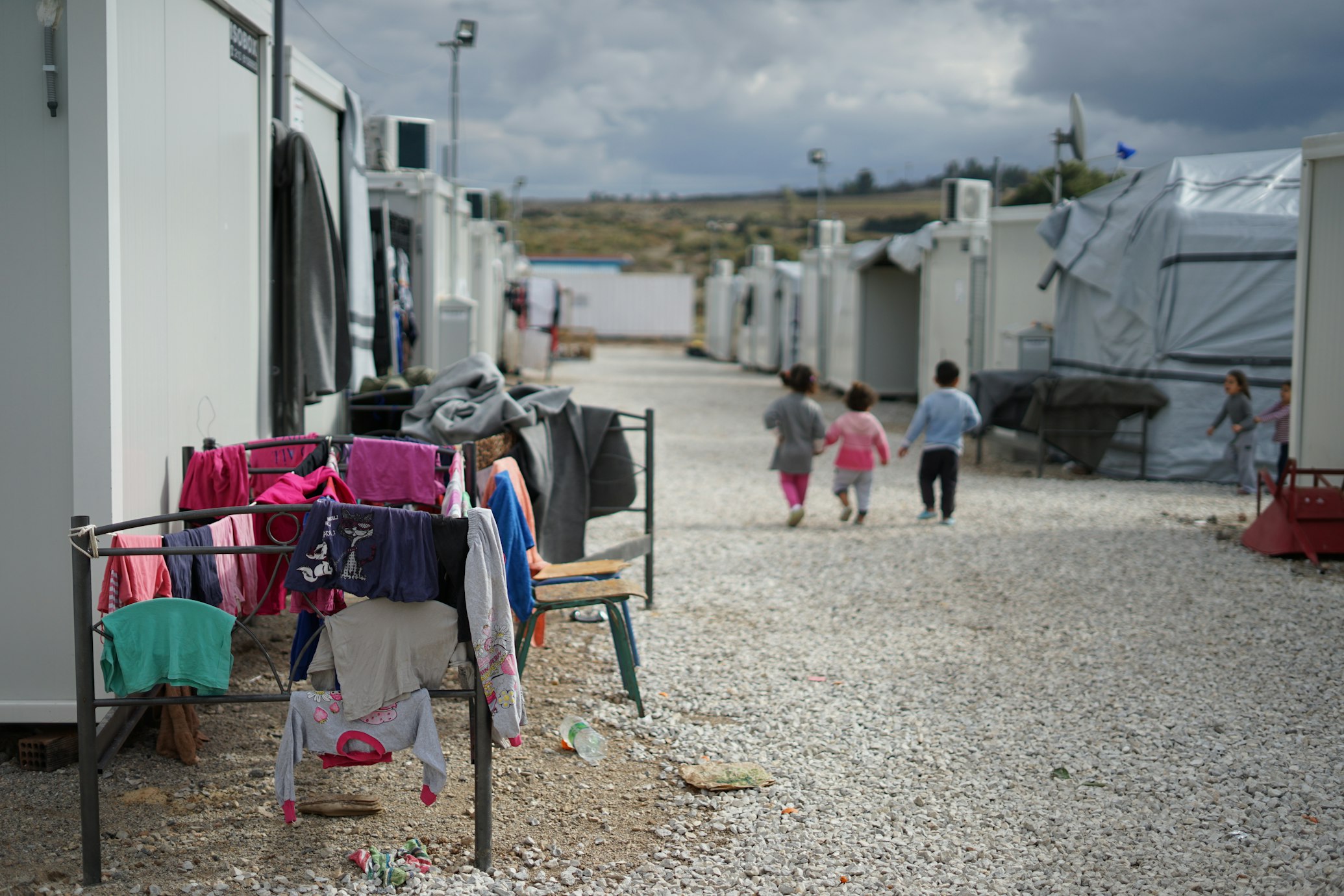Winter is Coming – The Refugee Crisis in Europe
Although the start of spring is still a little over a month away, the first warm days have just reached Groningen. It is a stark contrast with the icy weather we found ourselves in not more than a week ago. The Netherlands was not the only European country facing a cold weatherfront this February. Greece too experienced record low temperatures, with the heaviest snowfall in Athens recorded in the last 12 years. Although the sight of the Acropolis dusted in a layer of white is something many surely enjoyed, weatherfront Medea’s cold conditions also brought to light particular problems for the asylum seekers in camps scattered throughout the Greek islands. Although the camps’ younger inhabitants did their best to enjoy the snow, fact is the camps were poorly prepared for winter. Despite its yearly return, how to face the cold has become an urgent problem for the refugees. This in turn illustrates the state of the refugee crisis in Europe. Can the EU really do no better than only provide makeshift camps and tents that barely hold back the wind?
Preparing for colder temperatures was already an issue for the over 50.000 refugees hosted by Greece before the fires in Moria last September, but became even more problematic when the fires forced 12.000 asylum seekers to the streets. The emergency shelters created after offer far from enough protection against the cold. A representative of Doctors without Borders even said their patients could not sleep at night because of the cold. The UNHCR and several NGOs have provided some relief, distributing blankets and heaters, temporary shelters and other attempts to winter-proof the camps. Yet, the situation remained grim, with floods and insufficient insulation in the camps, as well as people finding themselves without adequate clothing.
Still, although improvised solutions are possible to keep the cold at bay, the situation in the camps is a problem that can only be solved through long term solutions. Winter returns every year, so what really must be done is revising the migrant reception system. The European Union has already urged Greece to dissolve the camps on its islands for a long time. The Covid-19 pandemic finally led to increased action to decongest the Greek camps and provide aid, information and medical facilities. To prevent the spread of the virus, many asylum seekers were transferred away from the camp and provided shelter in apartments, hotels and other camps on the mainland. Still, these facilities are temporary and the camps inadequate.
As part of the EU-Turkey deal, creating a more structural problem, many asylum seekers arriving at the Greek islands can only be transferred to the mainland once their asylum claims have been processed. This is a long process, trapping many asylum seekers in an “in between” state. This makes it clear the broader EU priority of reducing migration has taken away the focus on the functioning of its reception system. Is it time for other EU Member States to step in and take on responsibility?
The EU has the capacity to relocate refugees caught up in the Greek camps. Following the fires in Moria, some States (including Norway and Switzerland) already agreed to relocate 3,300 vulnerable asylum seekers. Although this is a good first step, the numbers relocated still only represent a fraction of the refugees requiring help. What remains necessary is policy providing long-term and humane solutions to the EU’s refugee crisis. Policy-makers must ask themselves what the EU really stands for, and whether the pitiful circumstances in its asylum-seeker reception system can be justified any longer. After all, this is not only a discussion about migration, security, capacity and economy, but a discussion about how we deal with individual lives.
By Dianne Kok
Further reading:
Info Migrants – Concerns over migrants in camps, after extreme weather hits Greece
United Nations Office for the Coordination of Humanitarian Affairs – Issue Brief: Blocked at Every Pass: How Greece’s Policy of Exclusion Harms Asylum Seekers and Refugees – Greece
The New Humanitarian – Winter warnings for Europe’s largest refugee camp (situation in Moria)



